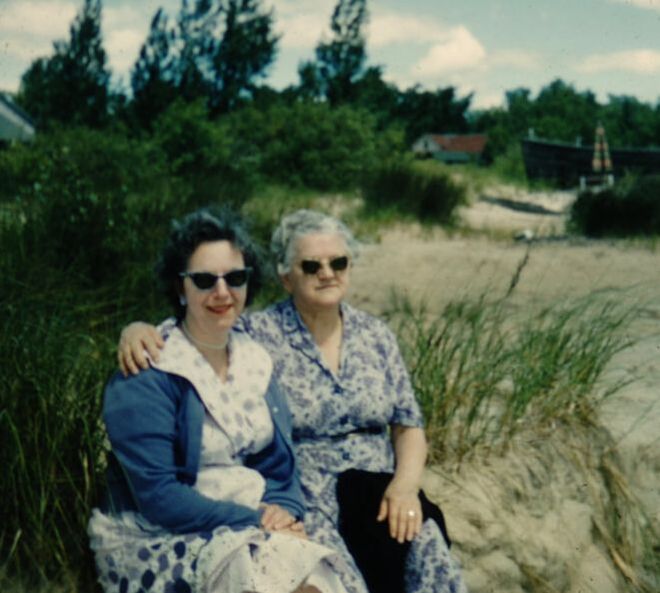Things were certainly different for the grandmothers of mid-20th Century America. Many of us kids were blessed to have ours living with us, always ready for a story or cards or bus ride downtown. Always up for treating us to Mickey Mouse Sundaes in the old German restaurant on Washington Street. And always on hand to babysit us, turning what would have been dreary times with preoccupied teenagers into evenings filled with our favorite board games and all the orange juice and pretzels we could consume.
I sure do miss Granny, but I’m confident that I’ll see her again one happy day. In the meantime, thinking about her this morning reminded me of how different things are for too many of today’s grandmothers. Take, for instance, the beloved heroine of my novel, The Song of Sadie Sparrow:
Sunday, June 17
On the surface, this year’s celebration of Sadie’s birthday—her eighty-seventh—was just like all the others since Ed died: a week late and executed with breathtaking efficiency by people with more important things to do. Daughter Dana had descended upon The Hickories’ North Sitting Room at precisely 2 p.m., husband Bill and daughters Hannah and Amanda in tow, each setting down bags of food and gifts before, in turn, giving the waiting Sadie Sparrow a peck on the cheek and a squeeze of the shoulders.
They unloaded cold cuts, cheeses, sourdough bread, potato salad, coleslaw, chips, an array of condiments, plus stout paper plates and everyday silverware. (“We didn’t have time to polish your silver,” Dana explained, launching into a litany of the week’s family activities.) There were bottles of soda and beer and a thermos of coffee—“decaf, just for you, Mom”—and a store-bought sheet cake thick with buttercream frosting.
There were also complaints about the blistering heat, so unusual for early summer. And there was the prayer that Sadie and Ed had taught Dana when she was just three, delivered now without even a whiff of reverence: “Come Lord Jesus, be our guest, let this food to us be blessed. Amen.”
For Sadie, it was nearly all déjà vu. Besides the location, the only difference this year was in her own reaction: shockingly, her feelings were not hurt, not one bit. All she felt was sorrow for her family, caught up in lives that would never satisfy, and fear that unless their hearts changed, they were headed for a Christ-less eternity. She would not let herself even think about what that would mean for them.
But she probed her feelings as they built their sandwiches and the kids chattered on about their latest highly organized adventures. It was a little like a poking at a once-sore tooth and finding, to her utter amazement, that it had healed completely. Conclusions were difficult to reach—she had to respond appropriately to her grandchildren now and then, after all—but she had the feeling it had come down to this: the only One who really mattered, the only One who really loved her and would be faithful to the end, was God Himself. That was what her life was all about now, and it was a wonderful place to be.
“Grandma? Helloooooooo!” It was math whiz Amanda, apparently miffed that she was being ignored. “Have you been listening to me at all?”
“Oh, I’m sorry, dear.” Sadie shook her head almost imperceptibly to send her thoughts back into the corner for the time being. “I was just thinking.”
“Is something wrong, Grandma?” Future M.D. Hannah this time, her beautiful face expressing serious concern. “Are you feeling sick?”
“No, no, just reflecting on some things. Everything’s wonderful.”
“Well, I’m glad to hear that,” Dana said, peering at her mother suspiciously. “More coleslaw?”
--From The Song of Sadie Sparrow, pages 342-343

 RSS Feed
RSS Feed